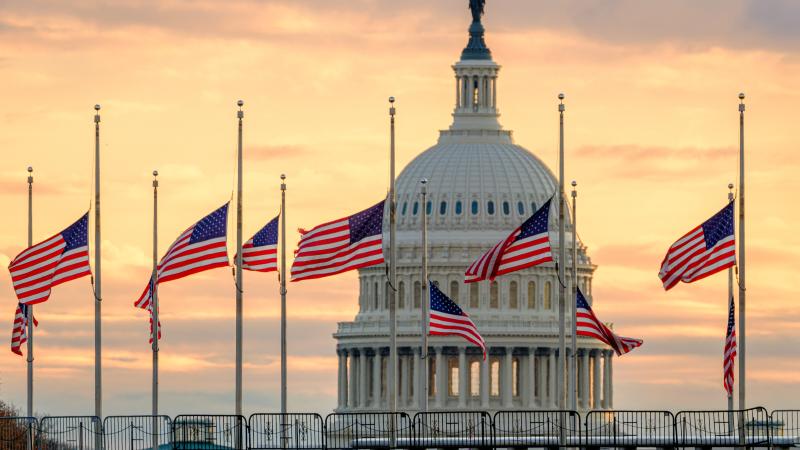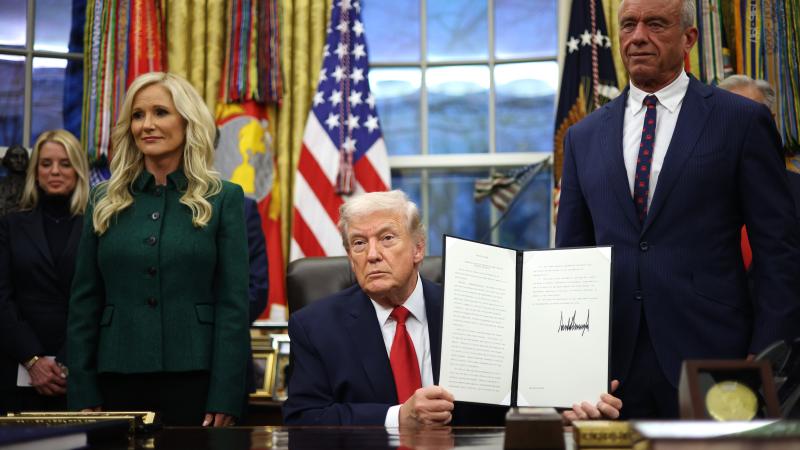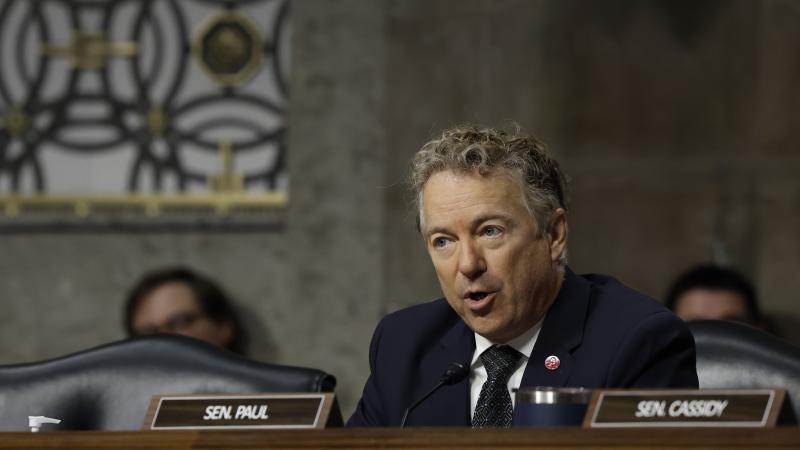With Medicaid reform, Republicans revive an old but still popular 'workfare' policy
In the 1980s, the U.S. government experimented in Midwest states like Wisconsin and Michigan with "workfare" which requires recipients of welfare benefits to do public service or attend job training.
The House Republicans' plan to reform Medicaid revives a popular conservative idea from decades earlier known as "workfare" that imposes work requirements on welfare recipients.
In the 1980s and 1990s, the U.S. government experimented with workfare in states like Wisconsin and Michigan, and Congress included the first national workfare requirement in a package aimed to reform welfare known as the Family Support Act in 1988.
Though championed by long-since retired GOP governors like Tommy Thompson and John Engler, the workfare concept remains remarkably popular decades later. According to a KFF poll conducted in March of this year, 62% of Americans support work requirements for Medicaid recipients.
That concept was front and center in the reconciliation legislation released by House leaders on Sunday night. The bill would impose “community engagement” requirements on Medicaid beneficiaries from ages 19 to 64 who do not have dependents and are “able-bodied."
Such recipients would have to either attend school or volunteer for 80 hours a month of community work under the proposed language. The requirement, however, doesn't kick in until Jan. 1, 2029, or after the next election.
“When so many Americans who are truly in need rely on Medicaid for life-saving services, Washington can’t afford to undermine the program further by subsidizing capable adults who choose not to work," House Energy and Commerce Committee Chairman Brett Guthrie explained in an OpEd in the Wall Street Journal.
Rep. Claudia Tenney, R-N.Y., a member of the Ways and Means Committee, said Monday the workfare requirement will create savings that help those most in need of the health care subsidies, from special-needs adults to seniors.
"Unfortunately, when you have these big programs in states like New York, where there isn't oversight, where there isn't any kind of stoppage or common sense to these things," Tenney said on the latest edition of the John Solomon Reports podcast.
"We need to take a look at those things and ask ourselves, 'why do we have 8 million New Yorkers on Medicaid in a state that should be prosperous when only about 5 million are eligible?" she asked. "Who are these three million people? Who of those three million people are able-bodied adults that don't have special needs? They're not seniors. They don't have children who are capable of going to work."
"I think work requirements is a reasonable ask of someone in that category...a 22-year-old or a 23-year-old, who has no other reason not to go to work other than they want to stay home."
The House Energy and Commerce Committee oversees Medicaid and is beginning to mark up the legislation this week.
The bill's provisions for work requirements and a new cost-sharing requirement for certain beneficiaries would force many Medicaid recipients to lose health insurance.
Tenney said one of the biggest problems her home state is facing is getting able-bodied people to actually go to work.
"They're getting incentivized to stay home," she said. "This is a problem that has become more in the modern era."
Guthrie, R-Ky., argued in his op-ed that the bill isn't intended to "attack" Medicaid.
"Undoubtedly, Democrats will use this as an opportunity to engage in fear-mongering and misrepresent our bill as an attack on Medicaid," Guthrie wrote. "In reality, it preserves and strengthens Medicaid for children, mothers, people with disabilities and the elderly—for whom the program was designed."
The legislation would also prohibit gender-affirming care for minors from being funded by Medicaid, as well as end Medicaid reimbursement for organizations like Planned Parenthood.
The Energy committee was told to find $880 billion in savings for the budget reconciliation bill that Trump is hoping will pass, and while the bill did not include spending estimates, Guthrie told Republicans on a call that his committee’s portion would save more than $900 billion.
Gurthie said that Medicare waste and abuse harms America's most vulnerable communities.
"This bill would claw back money headed for green boondoggles through 'environmental and climate justice block grants' and other spending mechanisms through the Environmental Protection Agency and Energy Department," he wrote. "The legislation would reverse the most reckless parts of the engorged climate spending in the misnamed Inflation Reduction Act, returning $6.5 billion in unspent funds. The bill would also begin refilling the dangerously low Strategic Petroleum Reserve.














